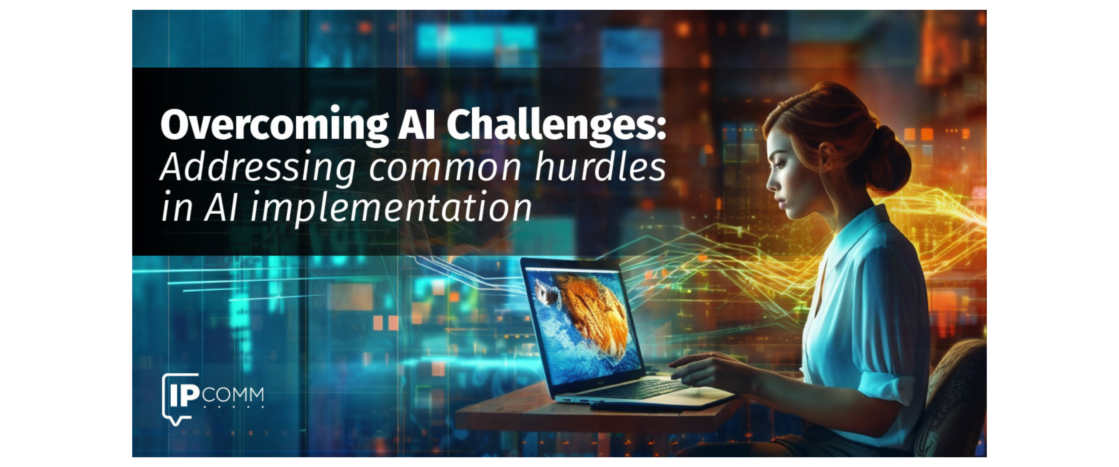Overcoming AI Challenges: Addressing common hurdles in AI implementation
BLOG

Article
Overcoming AI Challenges: Addressing common hurdles in AI implementation
Artificial Intelligence (AI) has the potential to revolutionize industries and transform the way we live and work. However, its widespread adoption is often hindered by a variety of challenges. In this blog post, IPCOMM delves into some of the most common hurdles in AI implementation and explore strategies to overcome them, backed by relevant statistics.
Common Challenges in AI Implementation
1. Data Quality and Quantity:
- Challenge: AI models are data-hungry. They require high-quality, diverse, and abundant data to learn effectively. A recent survey by Gartner found that 80% of AI projects fail due to poor data quality.
- Solution:
- Data Cleaning and Preprocessing: Rigorously clean and preprocess data to remove noise, inconsistencies, and missing values.
- Data Augmentation: Generate synthetic data to increase dataset size and diversity.
- Data Labeling: Accurately label data to train models effectively.
2. Model Complexity and Interpretability:
- Challenge: Complex AI models, such as deep neural networks, can be difficult to understand and interpret. This lack of transparency can hinder trust and adoption. A study by MIT Technology Review revealed that only 22% of organizations trust AI decisions without human oversight.
- Solution:
- Model Simplification: Use simpler models or techniques like feature engineering to reduce complexity.
- Explainable AI (XAI): Employ XAI techniques to provide insights into model decision-making processes.
- Visualization Tools: Utilize visualization tools to understand model behavior and identify potential biases.
3. Ethical Considerations:
- Challenge: AI systems can perpetuate biases present in training data, leading to unfair and discriminatory outcomes. A survey by Pew Research Center found that 72% of Americans are concerned about AI being used to make decisions that could have a significant impact on people’s lives.
- Solution:
- Fairness Testing: Regularly assess models for fairness and bias.
- Ethical Guidelines: Adhere to ethical guidelines and principles in AI development and deployment.
- Diverse Teams: Foster diverse teams to mitigate bias and promote ethical AI practices.
4. Infrastructure and Computational Resources:
- Challenge: AI models, especially large-scale ones, require significant computational resources and specialized infrastructure. According to a report by McKinsey Global Institute, AI could create $13 trillion in additional global economic output by 2030, but this will require substantial investments in hardware and software.
- Solution:
- Cloud Computing: Leverage cloud-based platforms to access scalable computing resources.
- Hardware Acceleration: Utilize specialized hardware like GPUs and TPUs to accelerate training and inference.
- Efficient Algorithms: Employ efficient algorithms and optimization techniques to reduce computational costs.
5. Talent and Skills Gap:
- Challenge: A shortage of skilled AI professionals can hinder AI adoption and development. A study by PwC found that 67% of businesses struggle to find AI talent.
- Solution:
- Education and Training: Invest in AI education and training programs to develop a skilled workforce.
- Collaboration and Partnerships: Collaborate with academia, industry, and research institutions to share knowledge and expertise.
- AI Tools and Platforms: Utilize user-friendly AI tools and platforms to lower the barrier to entry.
By addressing these common challenges and leveraging the power of AI, organizations can unlock new opportunities, drive innovation, and achieve sustainable growth.
Want to know more? Have a chat with us!